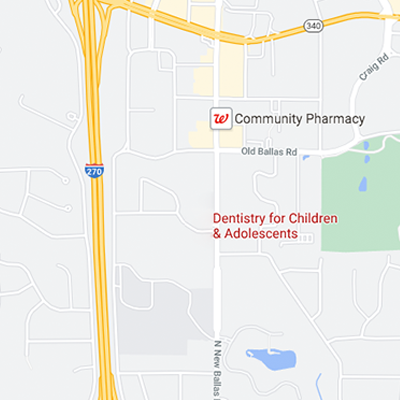
Dr. Varble, Dr. Dill, Dr. Wong, and Dr. Parks and our team at Dentistry for Children know that periodontal disease isn't something exclusive to adults. It can affect adolescents as well. Gingivitis, which is a milder form of periodontitis, is a form of periodontal disease, and a warning that more serious problems may arise. Untreated gingivitis can develop into full-blown periodontitis.
The American Academy of Periodontology (AAP) explains that research proves that younger people may develop more severe forms of gingivitis. Gingivitis is linked to periodontal disease. Children and adolescents who have type 1 diabetes or immune deficiencies are more likely to suffer from periodontal disease.
There are three types of periodontal diseases Dr. Varble, Dr. Dill, Dr. Wong, and Dr. Parks and our team see in children and adolescents.
Chronic gingivitis
Parents may suspect that their adolescent has chronic gingivitis if he or she shows or complains of symptoms such as redness, swelling, or bleeding gums. Early treatment may prevent gingivitis from developing into a more severe form of periodontal disease.
Aggressive and/or chronic periodontitis
Once called adult periodontitis, the term chronic replaces “adult” because periodontitis can occur in people in their early teenage years, and progress throughout their teens. Chronic and aggressive periodontitis primarily affects incisors and first molars. One of its distinguishing characteristics is bone loss. Curiously, patients who suffer from this form of the disease have minimal dental plaque on examination.
Generalized aggressive and chronic periodontal disease
This form of periodontal disease has many of the same characteristics of the chronic and aggressive form, but this more severe type of the disease affects the entire mouth. Symptoms include major plaque and calculus accumulation, and inflamed gums.
In both forms of more severe periodontal disease, the overall gum structure may change. The severity of these changes may alter gum strength enough to loosen teeth, or even worse, cause them to fall out.
The success of any treatment is largely contingent on early diagnosis. Dr. Varble, Dr. Dill, Dr. Wong, and Dr. Parks should conduct a thorough periodontal exam as part of an adolescent’s twice-yearly complete dental examinations.
The mouth is full of bacteria. Some of it is necessary for food digestion. Diseases are more likely to develop if bacteria travel to open places in the mouth, such as exposed gum pockets or cavities. Proper dental hygiene is essential for a healthy mouth, and a healthy mouth offers greater protection against painful dental diseases.
Be sure every member of your family has a complete dental exam and cleaning twice a year, and contact Dr. Varble, Dr. Dill, Dr. Wong, and Dr. Parks when you or your young kids or adolescents complain of pain, sensitivity, or other oral problems. Early detection at our Creve Coeur or St. Charles office leads to treatment of oral problems and prevents them from turning into serious periodontal disease and potentially irreversible problems.



